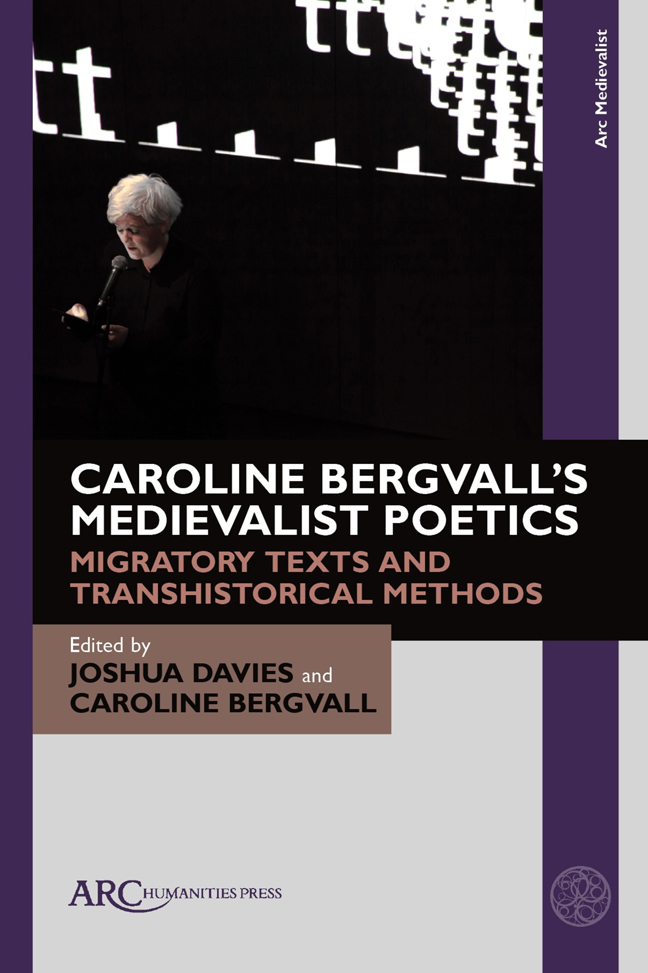Chapter 6 - Translative Bergvall, or the Work of Translation
Published online by Cambridge University Press: 20 February 2024
Summary
AS CAROLINE BERGVALL first “stumbled” on what she terms the “largely incom-prehensible” Old English of the The Seafarer, she argues that she must “remind [her]self that this project is not an exercise in translation.” Similarly, in her reading of Bergvall’s “Via” as the theater of performance, Sandra Bermann states that “there is no discern-ible telos, no glimmer of Paradise and no sign of Virgil as guide. Instead, there is only repetition-with-a-difference, and a reinauguration of the pilgrim-poet’s initial predica-ment: lost. Lost in translation, we as readers and listeners are nonetheless invited to do something ourselves.” Although she is not a translator and although she clearly says that her work is not about translation, I will show that translation plays an active role in Bergvall’s work. As Bermann points out, Bergvall does not so much envisage transla-tion as a transfer from one language to another language, according to a source-target paradigm. In her multilingual writing, she considers and uses translation as an active rather than prescriptive or nostalgic activity. In “Via,” in Meddle English, as well as in Drift, translation is generative in the sense of doing something, a doing that involves the reader
Indeed, in Bergvall’s oeuvre translation is always an invitation to work, as the Franco- English slippage from “travail” to “labour” in Goan Atom makes clear: “en trav Ail Aíô e / La bour La bour La bour.” Here “travail” can never strictly be translated as “labour” because letters and syllables proliferate. As they disseminate, they can never cohere into one stable meaning. They create anglofoamic language. Indeed, “trav” is the beginning of the word “travail,” but it may also be read as the shortened word for “travesty” in French, just like “La bour” functions as the English “labour” and the French “labour,” meaning ploughing. This example shows that in Bergvall’s work translation does not travel from one point of origin to a final destination, rather it creates “trav”translation, in other words it turns it into a travesty, a performance of translation. Translation travails, or, that is, it works as a multidirectional poetics of relation(s).
As a reader of Bergvall’s writing and as a (co)translator of Meddle English and Drift, I want to look at how translation works its way into Caroline Bergvall’s texts and how this work is an invitation to invent translative processes.
- Type
- Chapter
- Information
- Caroline Bergvall's Medievalist PoeticsMigratory Texts and Transhistorical Methods, pp. 57 - 64Publisher: Amsterdam University PressPrint publication year: 2023

